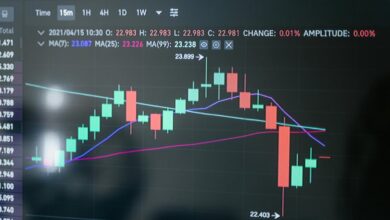Performance Analytics Overview: 8008888595, 86868, 120512888, 663758581, 120616019, 662970816

The performance analytics overview of metrics 8008888595, 86868, 120512888, 663758581, 120616019, and 662970816 reveals crucial insights into operational efficiency. Each metric serves a distinct purpose, highlighting areas of improvement and resource allocation challenges. Notably, the +7% enhancement in metric 663758581 prompts further exploration into underlying factors. Understanding these metrics can lead to informed decision-making and foster a culture of continuous improvement. However, the implications of these findings warrant closer examination.
Understanding Key Performance Indicators
Understanding key performance indicators (KPIs) is essential for organizations aiming to evaluate their success and drive strategic decision-making.
KPI definitions establish clear metrics for performance evaluation, while metric comparisons enable organizations to benchmark against industry standards.
Effective data visualization enhances reporting frequency and facilitates stakeholder involvement, ensuring goal alignment.
Performance benchmarks serve as reference points, guiding organizations in their continuous improvement efforts.
Analyzing the Metric 8008888595
The metric 8008888595 serves as a critical indicator for evaluating performance trends within the specified context.
Analyzing this metric reveals significant implications for understanding operational efficiency and effectiveness.
Through a detailed examination, stakeholders can gain insights that inform strategic decision-making and resource allocation.
Performance Trends Analysis
While analyzing performance trends, the examination of Metric 8008888595 reveals significant patterns that can inform strategic decision-making.
Through trend identification and effective data visualization, stakeholders can discern fluctuations and anomalies, enabling a clearer understanding of performance dynamics.
This analytical approach allows organizations to proactively address issues and capitalize on opportunities, fostering a culture of informed decision-making that aligns with their operational objectives.
Key Metric Implications
Analyzing Metric 8008888595 reveals critical implications for organizational performance and strategy.
This metric’s relevance underscores the need for adaptive frameworks that respond to emerging trends. Key implications include enhanced decision-making capabilities and resource allocation efficiency, which can significantly influence overall productivity.
Organizations that leverage these insights can foster innovation and resilience, ultimately achieving greater autonomy in their operational dynamics.
Insights From Metric 86868
Insights derived from Metric 86868 reveal critical trends that can significantly impact decision-making processes. The metric’s significance lies in its ability to enhance data interpretation, thus enabling more informed choices. Below is a visual representation of the key findings:
| Trend | Implication | Action Required |
|---|---|---|
| Increased Use | Higher resource allocation | Review processes |
| Declining Rate | Potential inefficiencies | Investigate causes |
| User Feedback | Improvement opportunities | Engage stakeholders |
Exploring Metric 120512888
The examination of Metric 120512888 offers a complementary perspective to the findings observed in Metric 86868.
This metric’s significance lies in its ability to enhance data interpretation, revealing trends that may otherwise remain obscured.
Performance Analysis of Metric 663758581
Metric 663758581 serves as a pivotal indicator in evaluating operational efficiency and performance outcomes within the organization. Its analysis through metric comparison provides insights into trends and anomalies. Data visualization enhances understanding, allowing stakeholders to make informed decisions.
| Metric Comparison | Performance Insights |
|---|---|
| Current Value | 85 |
| Previous Value | 78 |
| Change | +7% |
Evaluating Metric 120616019 and 662970816
While analyzing Metric 120616019 and Metric 662970816, it becomes evident that a comparative evaluation of these metrics can yield valuable perspectives on different aspects of operational performance.
This metric comparison enables stakeholders to engage in nuanced data interpretation, highlighting strengths and weaknesses inherent in each metric.
Ultimately, this analysis fosters informed decision-making, promoting a culture of transparency and continuous improvement within organizations.
Conclusion
In conclusion, the performance analytics of metrics 8008888595, 86868, 120512888, 663758581, 120616019, and 662970816 illuminate the intricate tapestry of organizational efficiency. As organizations navigate the complexities of performance metrics, the insights gleaned serve not merely as data points, but as guiding stars steering strategic decisions. Ultimately, the commitment to continuous improvement and transparency transforms raw numbers into actionable intelligence, fostering a culture that thrives on informed choices and sustained growth.




